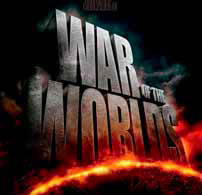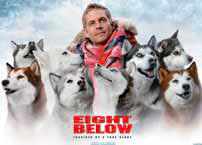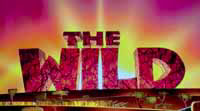Connie: I sure hope we can get rid of you soon, Sulphur Dioxide!
Sulphur: Good luck, guys! I gotta do some more picketing before I catch the next east wind! (Sulphur Dioxide returns to picket line. Nitros walk over.)
Harry: (to the audience) He's really rotten!
Nitros: (all together) You think Sulphur Dioxide is rotten? You haven't met us!
Connie: You must be the Nitrogen Oxides.
Nitro 1: Just call us the Nitros for short. (turns to audience) Give me an "N"!
Audience and other Nitros respond: "N"!
Nitro 2: Give me an "I"!
Audience and other Nitros respond: "I"!
Nitro 3: Give me an "T"!
Audience and other Nitros respond: "T"!
Nitro 4: Give me a "R"!
Audience and other Nitros respond: "R"!
Nitro 5: Give me an "O"!
Audience and other Nitros respond: "O"!
Nitro 1: What's that spell?
Audience and other Nitros: NITRO!
Nitro 2: What's that mean?
Other Nitros: DIRTY AIR!
Harry: Hey, I didn't know pollutants could spell.
Nitro 4: Very funny, Harry.
Connie: So, how do you Nitros get into the air?
Nitro 5: We get airborne when cars, planes, trucks and power plants burn fuel.
Harry: And what happens once you're in the air?
Nitro 1: We can make people's lungs hurt when they breathe-- especially people who already have asthma.
Nitro 2: And, like Sulphur Dioxide, we react with water in the air and form acid rain.
Nitro 3: But we also make another form of pollution. And here she is-- BAD OZONE! (Bad Ozone waves and walks over. Nitros return to picket line.)
Bad Ozone: Well, my friends, the Nitros, pour into the air, they get together with some other pollutants. As the sun shines on all these lovely pollutants, it heats them up—and creates me, Bad Ozone. And where there's ozone, there's smog.
Harry: (to audience) Smog contains a lot of ozone. |
Connie: That's right, Harry. And smog can really make city life miserable. It can make your eyes burn, your head ache and it can damage your lungs.
Harry: But what I want to know is, if ozone is so bad, why are people worried about holes in the ozone layer? (Good Ozone walks in from offstage.)
Good Ozone: That low-level ozone is my rotten twin sister-- she's just a good gas turned bad! I'm the good ozone that forms a layer high above the Earth. I help absorb the harmful rays of the sun.
Bad Ozone: (nastily to Good Ozone) So what are you doing here, sis?
Good Ozone: I'm here to support the clean air laws. If certain chemicals keep getting pumped into the atmosphere, I'll disappear. And without me, the harmful rays of the sun will kill some kinds of plants and give many more people skin cancer and eye disease!
Harry: But what kinds of chemicals are making you disappear?
Good Ozone: It's those terrible CFCs! (CFCs walk over from picket line.)
CFC 1: Hey, we're not so bad! People have used us CFCs in coolants for refrigerators and air conditioners for your home and car.
CFC 2: So what if we destroy a little bit of ozone? There's enough to last for years!
CFC 3: Yeah- who needs ozone anyway?
Good Ozone: People do! Tell them what else you CFCs are doing!
CFC 4: What's Ozone complaining about now- global warming? (EPA scientists walk in from offstage. Good and Bad Ozone walk offstage.)
Scientist 1: Excuse me, but did I just hear someone mention global warming?
CFC 2: Yeah. What do you want?
Scientist 2: We just happen to be experts on global climate change.
Connie: Are CFCs really changing the world's climate?
Scientist 1: Well, we're not positive. But over the past 100 years or so, people have been pouring gases, such as CFCs and carbon dioxide, into the air.
Scientist 2: And as they build up in the atmosphere, these gases may be acting like the glass in a greenhouse. |
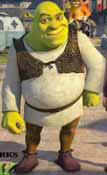
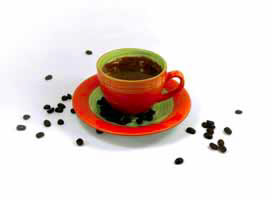


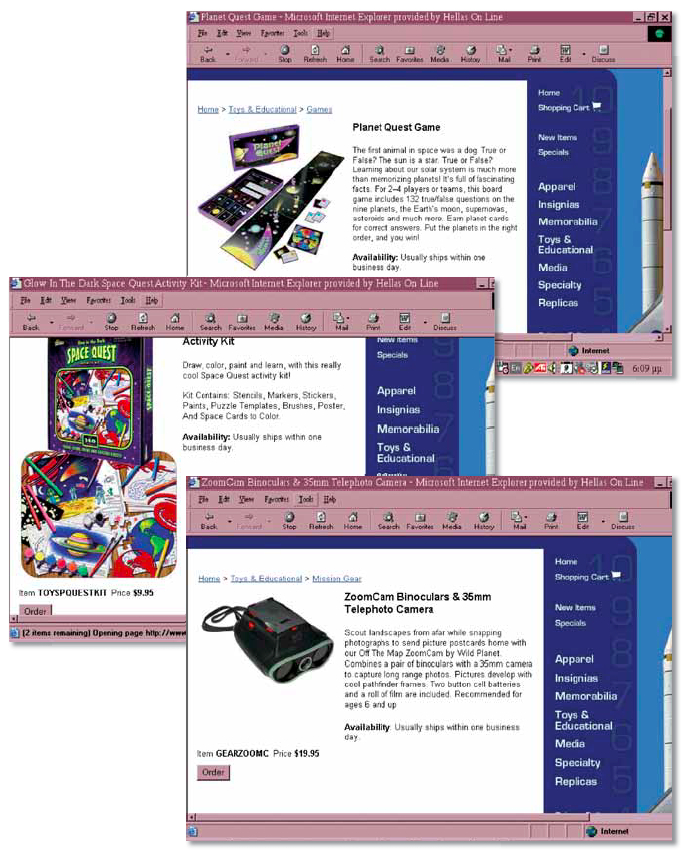
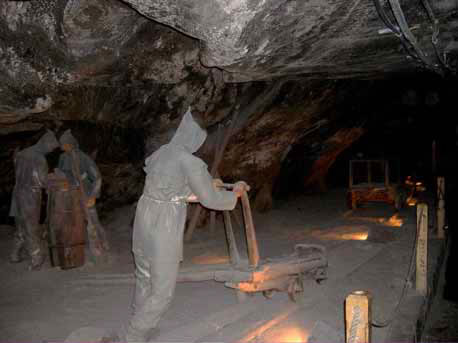
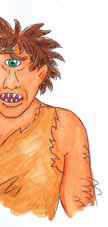 Monster's ID
Monster's ID
